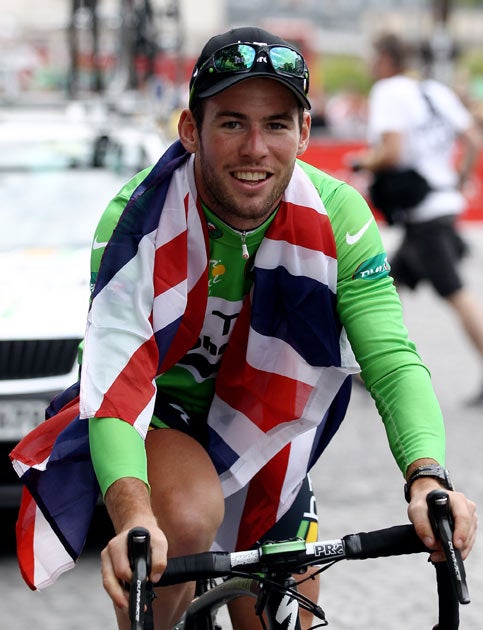Robin Scott-Elliot: An Olympics built to last beyond Britain's golden summer dream
At £9.3bn these can hardly be described as 'Austerity Games', but London hopes imaginative post-planning can pay off

"I'm a a Londoner," says Sebastian Coe, "and I think London is a unique city. By this time next year it will be a very unique city – if you'll pardon the expression – as the only one to host the Games on three occasions. The heritage is a lot to live up to."
In both 1908 and 1948, London hosted what were considered highly successful and innovative Games and the 2012 version has been designed to deliver another direction for the world's largest sporting event when it opens in the capital's East End in 365 days' time.
After the spectacular of Beijing in 2008, next year will see a Games more in keeping with the age. It will not be the Austerity Games, like the last ones in post-war Britain; this will be more of a cut-out-and-keep Games. The entire project has been planned with a careful eye on what will happen a year and three months from now when the Games are done and the Paralympics complete. The aim is to leave a definable legacy in one of Britain's most deprived areas and the lessons of Sydney and, in particular, Athens have been carefully absorbed.
The build is 90 per cent complete. Today the Aquatics Centre becomes the final venue on the Park to be finished. It is one of the permanent structures that will remain, along with the main stadium, the sleekly impressive velodrome and the handball arena, which will become a multi-purpose sports arena. Others, like the hockey centre and basketball arena, will be packed up and reassembled elsewhere. The athletes' village will morph into much-needed housing.
With a headline figure of £9.3bn it does not immediately register as a bargain Games, but that is around a quarter of the figure Beijing spent, and part of the message is supposed to be that here is an event that is not for ever to be restricted to the world's major cities.
"That's part of London's mission," says Hugh Robertson, the Olympics Minister. "The challenge to us is to bring it down to size a bit [after Beijing], to give other countries round the world the confidence they can bid for it. If we manage to deliver this on time and under budget for £9.3bn, that should give other countries around the world the confidence to bid for it. I'm delighted the next Games are going to Rio. I want to see them on the continent of Africa. I want to see them in India. That's really important."
London is in a good position to consider the future. The International Olympic Committee is impressed with the state London's in. "We are well advanced and this is a very comfortable position to be in," says Denis Oswald, the IOC executive board member who heads the coordination commission for London.
Between today's ceremony in Trafalgar Square and Tom Daley taking the first plunge into the pool this evening and next year's somewhat grander affair, the focus will switch from bricks and mortar to the 10,500 athletes who will deliver the memories of 17 days of elite competition.
The home nation usually enjoys a spike in performance – China took a staggering 51 gold medals last time, while Greece's six golds in 2004 were their best since the previous time they hosted the Games in 1896. Britain should be somewhere in the middle.
UK Sport and the British Olympic Association both appear increasingly confident of justifying the £264m in funding that has been spent on preparing the 550 men and women who will pull on the British vests, shirts and swimming costumes with a total of nearly 50 medals. "We have never been in such good shape," says Dave Brailsford, the mastermind behind British cycling's success and an increasingly important presence in Team GB.
It could be one of Brailsford's own who provides that first golden moment that is so important in setting the tone for the host nation, as well as for all the different sports that make up the British team. The day after the opening ceremony the men's road race begins and Mark Cavendish is the man to beat.
In Beijing it was Nicole Cooke's gold in the women's road race that gave Team GB early momentum. A final fourth-place finish in the medals table was better than had been forecast, and the spur across all sports provided by the sight of Cooke celebrating in the rain has been acknowledged as an important factor.
Similarly when the athletics begins in the 80,000-seat stadium in week two, Jessica Ennis has the chance to provide another boost, and elevate herself into a different league. A gold medal will be a life-changing experience and the signs are, from this distance, there will be plenty to celebrate.
Subscribe to Independent Premium to bookmark this article
Want to bookmark your favourite articles and stories to read or reference later? Start your Independent Premium subscription today.

Join our commenting forum
Join thought-provoking conversations, follow other Independent readers and see their replies